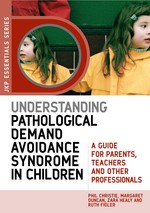Dramatherapy and Family Therapy: Essential Pieces of the Multi-Agency Jigsaw in Education – An Interview with Penny McFarlane and Jenny Harvey
“…historically, the intervention for children with emotional and behavioural difficulties has generally been based on behaviour improvement on a cognitive level rather than looking at the meaning behind the behaviour. For a school to accept that a deeper understanding and interpretation of behavioural difficulties is necessary to meet a child’s needs on a sustainable level is a big leap of faith. Therapy is about change and the capacity to maintain changes, and this book can help allay the fears that prevent schools from embracing this mode of intervention.”









